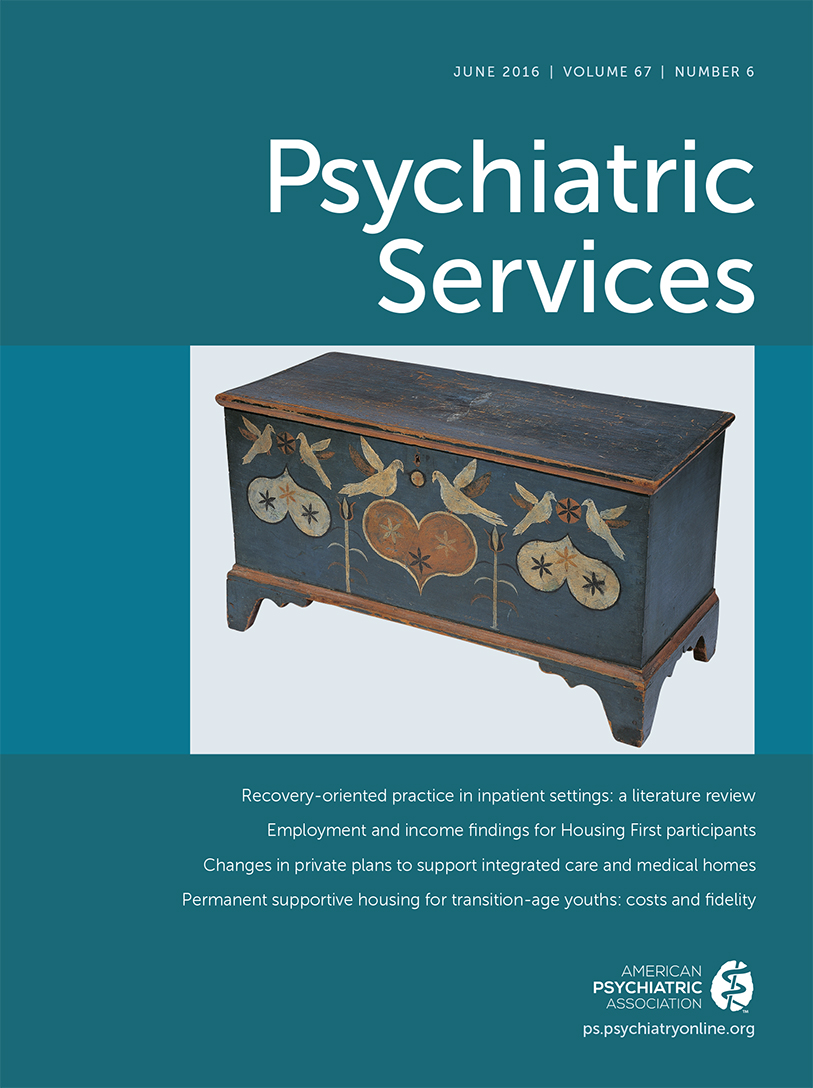A CBT Intervention Targeting Competitive Work Outcomes for Persons With Mental Illness
Work is a preeminent goal for persons with mental illness. Although supported employment (SE) services help some in this population acquire jobs, many remain unemployed. Among individuals with mental illness who obtain employment, job tenure is limited. In an effort to explain poor work outcomes, the literature identifies barriers that SE services do not routinely address, such as low work-related self-efficacy, ambivalence toward work, low motivation, neurocognitive deficits, and impairments in metacognition. Consequently, the development of adjunctive interventions that effectively reduce these barriers and improve employment outcomes has been highlighted as an urgent need.
Paired with SE services, cognitive-behavioral therapy (CBT) is a prime candidate to improve employment outcomes among persons with mental illness. Traditionally, CBT has been used to reduce psychiatric symptoms. However, these interventions offer less benefit to functioning in the community, likely because traditional CBT approaches do not specifically target functional improvement as the intended outcome. We sought to fill this gap by developing and examining the feasibility and preliminary effectiveness of a CBT intervention to augment SE services targeting community work.
Participants were recruited through the SE program at an urban Veterans Affairs medical center in three waves—December 2014, April 2015, and August 2015. The CBT for Work Success Program (CBTw) was adapted from the Indianapolis Vocational Intervention Program (IVIP), a CBT intervention accompanied by a manual and for persons with schizophrenia engaged in temporary, noncompetitive work. An empirically based, iterative, stepwise process was used to adapt IVIP to fit the needs of persons with a range of mental illnesses who are seeking competitive work. The newly adapted intervention, CBTw, was piloted across the three waves of participants; exit interviews elicited feedback on the program. Participant feedback and feedback from group facilitators guided further revision of the intervention protocol, resulting in a finalized CBTw protocol and participant manual.
CBTw is tailored to the needs of employed and unemployed persons who have community work goals and includes 12 sessions delivered in a weekly one-hour group format. CBTw focuses on examining and modifying maladaptive thoughts related to work, enhancing work-related self-efficacy, improving motivation to work, identifying work goals and personal values tied to vocation, and increasing healthy coping strategies that can be applied across employment settings. The intervention also uniquely focuses on work success, assisting participants to develop personalized work success management plans based on knowledge gained in earlier sessions. These plans aim to help participants address personal work barriers that may interfere with career achievement, such as difficulty dealing with others on the job, maladaptive behavioral patterns at work (such as a history of walking off the job when difficulties with task completion arise), low self-esteem, and self-stigma. Session content includes the following 12 modules: work goals and values related to work, CBT model and work, thinking about work, using the “4 A’s” to enhance healthy thinking, barriers to work, coping with stress and anxiety, coping with anger and difficult emotions, communication at work, dealing effectively with people at work, accepting and learning from feedback, managing work success, and personal work success plan.
Forty-five veterans expressed initial interest in the study; 24 (53%) consented to participate. Twenty-one (88%) participants completed the study, and three did not. At baseline, all participants were unemployed, and all but three participants were unemployed in the six months preceding the study. During the study period, among the 21 CBTw completers, nine participants (43%) acquired competitive jobs—a significant improvement compared with baseline and compared with the six months before the intervention. In addition, participants were very satisfied with the CBTw program overall and endorsed strong satisfaction for the CBTw program in helping them achieve their work goals.
Without a control group, the precise contribution of the CBTw program to job acquisitions is unknown, yet the finding that participants perceived that the intervention helped them achieve their work goals is encouraging. In addition, nearly 43% of those who completed CBTw obtained work compared with typical VA SE discharge employment rates of one-third, suggesting that this new intervention may be a promising step toward improving vocational functioning in this population. These findings are striking given that most of the sample had been receiving SE services for over a year, yet all were unemployed at baseline. One potential explanation may be that these “nonresponders” to SE were experiencing work barriers that were addressed through CBTw. Further research is needed to examine the efficacy of this intervention in a randomized controlled trial comparing people with mental illness receiving CBTw and SE with those receiving SE alone.



